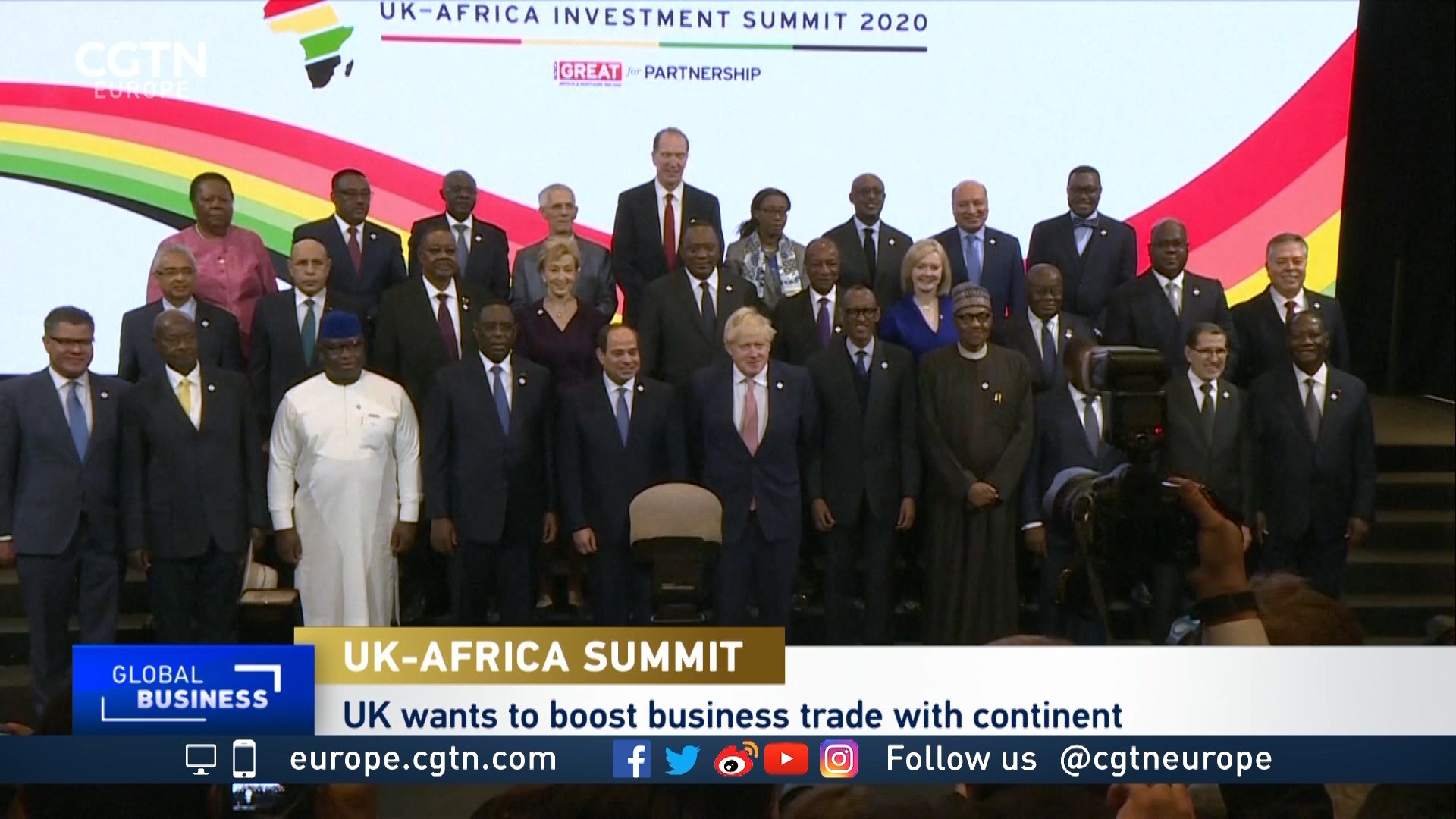02:04

London's first UK-Africa summit started positively enough. More than 20 African heads of state assembled in Greenwich to be greeted by an assembled delegation of UK private enterprise and banking experts. The conference had a last-minute feel, but that was largely because the regulation quagmire of Brexit is still making predictions – and therefore guarantees – a difficult matter for both the government and the private sector.
It is accepted that Britain is late to the game, with China, Russia, Japan, India and others all well advanced in the Africa investment business. But somehow the UK still retains deep roots in the continent, more colonial than commercial, but roots that Downing Street is eager to leverage now for the next decade.
This is a not a summit about trade, but about investment. It's about getting in at the start of what promises to be an interesting and likely prosperous period of Africa's history. In 20 years from now, a quarter of the world's consumers will be Africans and many of the continent's capitals are poised to become the mega-cities of the future.
The focus on infrastructure will be in direct competition with countries such as China and, while London can't compete with the billion-dollar promises from Beijing, it still hopes to deploy some UK entrepreneurship and banking expertise to the benefit of Britain and the African continent.
The important aspect of the conference will be the shift from the embedded British view of Africa as a focus of poverty, hardship and international aid programs to a continent where six out of 15 of the world's fastest-growing economies can be found. And it has to be said that Britain's legacy of development assistance has made huge strides in reducing child mortality and increasing life expectancy. There's good will there that can be converted to the business relationship of tomorrow.
There is, inevitably, a Brexit dimension to all this. Whitehall has been tasked by Downing Street to explore all avenues of future economic activity as Britain casts off from its old trading bloc. Africa is still a tiny economic presence on the world stage, with a combined output roughly equivalent to that of Germany. There's plenty more work to be done before the UK's future economic direction is settled.